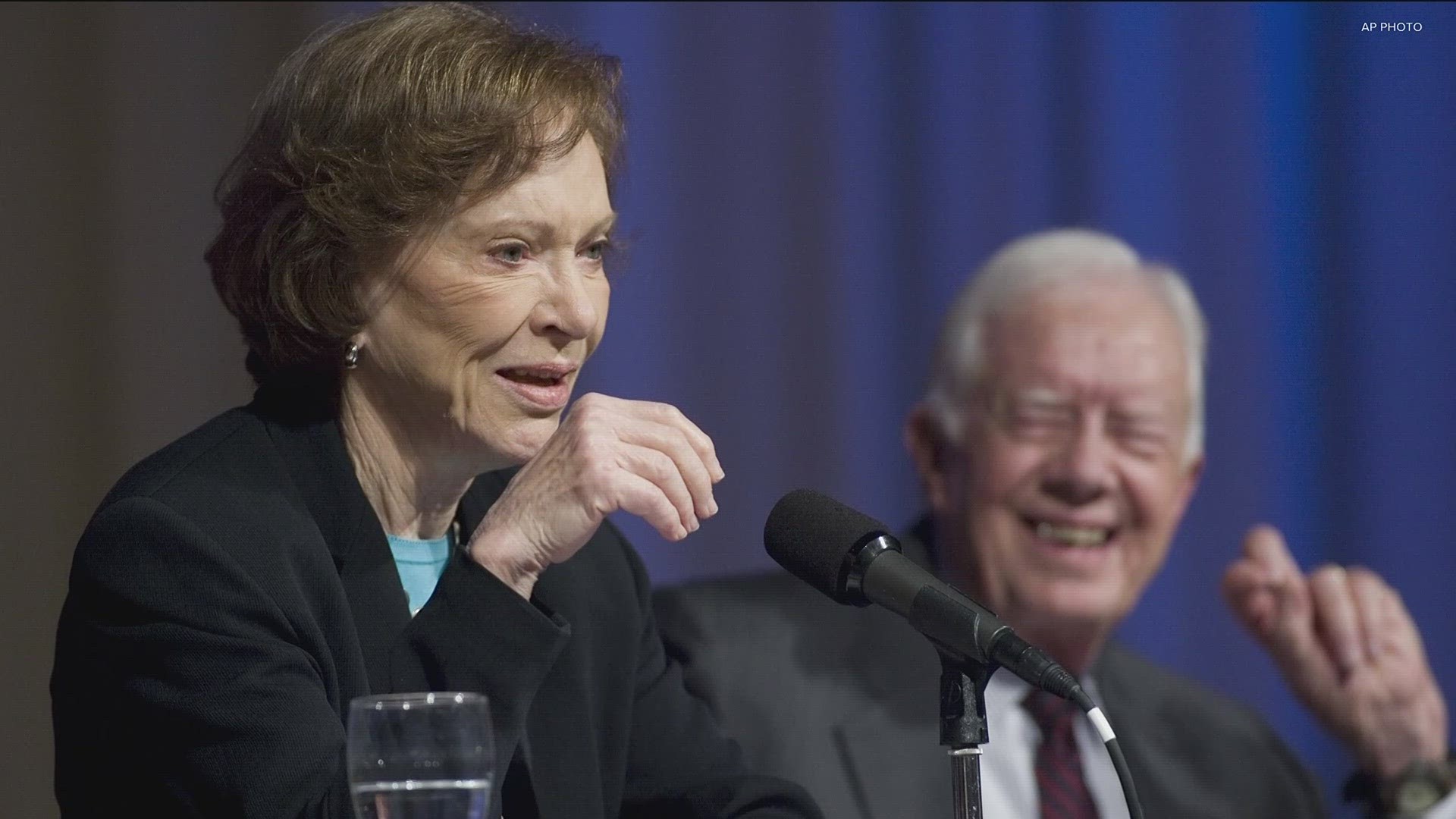AMERICUS, Ga. — In the small town of Americus, Georgia, only ten miles down the road from the famous hometown of Jimmy and Rosalynn Carter sits an organization named after the former First Lady. Its mission is to help a population close to Mrs. Carter’s heart.
“I say our job is not to make caregiving easy. Our job is to make caregiving less hard,” said Dr. Jennifer Olsen, CEO of the Rosalynn Carter Institute for Caregivers.
From Plains, Georgia to the White House and back, caregiving has always been part of President and Mrs. Carter’s journey.
Now, as the former president receives home hospice care, it marks a new chapter in their caregiving journey together.
Dr. Olsen says both the Carters have been intimately involved in the Institute since the day she interviewed for the job in 2018.
“The first thing that struck me was Mrs. Carter came to the door with my resume in her hand with highlights and notes on it,” she said. “And President Carter came into the room and said, ‘Yeah, shouldn’t you go work at the Carter Center?’ And then I took that as my opportunity to convince both of them and make the case that caregiving is a public health issue.”
The Institute was created in 1987, but the seed to help was planted more than 20 years earlier when Mr. Carter was running for Governor of Georgia and Mrs. Carter kept getting the same question about mental health.
“What’s the president going to do? What’s the president going to do? So, she decided to get herself into the line, the meet and greet line, for the president, reach out to shake his hand and ask him what he’s going to do about mental health,” Dr. Olsen said.
Mrs. Carter reminisced on the same moment at a mental health town hall in 2012, saying, “He reached for my hand before he knew who I was. And he said what are you doing here? And I said I want to know what you’re going to do for people with mental illnesses when you’re Governor of Georgia. And he said we’re going to have the best program in the country and going to put you in charge of it.”
And he did.
From the Governor’s Mansion to the White House, Mrs. Carter led commissions, testified before the Senate, and wrote books on the issue.
While his wife provided the face and voice for the mission of supporting mental health and later caregivers, the former president became a quiet ally, relishing the role of supportive husband to tackle the issue together.
“President Carter donated part of his Nobel Prize winnings to the institute back 20 years ago. So, this hasn’t just been a recent effort. It’s been a long-standing level of support,” Dr. Olsen said.
For 36 years, the Rosalynn Carter Institute has been a quiet disrupter, influencing policy, forging partnerships and doling out resources to those who need it most.
“Our website is most popular in the late-night hours or the early morning hours when a caregiver is reaching their crisis point,” Dr. Olsen said.
About 133 million Americans, nearly half the population, suffers from at least one chronic illness. That’s 15 million higher than a decade ago.
It’s forcing one in five adults into an active caregiving role.
“We know caregivers experience especially mental health challenges at higher rates than their non-caregiving peers,” Dr. Olsen said.
Even in their nineties, as Mrs. Carter steps into a caregiving role once again, Dr. Olsen says the Carters are still intimately involved in the Institute.
The Institute launched a new initiative called the 4Kinds Network.
The name refers to Mrs. Carter’s well-known quote: “There are only four kinds of people in the world: those who have been caregivers, those who currently are caregivers, those who will be caregivers, and those who will need caregivers.”
The 4Kinds Network mobilizes former caregivers to advocate and help others, something they hope creates meaningful change.
Their next big goal is to create an Office of the Caregiver inside the Department of Health and Human Services.
“Now there are very few, if any, federal employees who even have the word caregiver in their job title,” Dr. Olsen said. “That’ just doesn’t make sense to us."
Sometimes the obvious thing is where the Carters thrive, turning common-sense humanity into a lifelong mission and a legacy to be continued.
“I think there’s a commitment to whatever cause they have put their name to for it to move forward. And you, as a participant in that, just feel like you’ve got to keep it going,” Dr. Olsen said.

